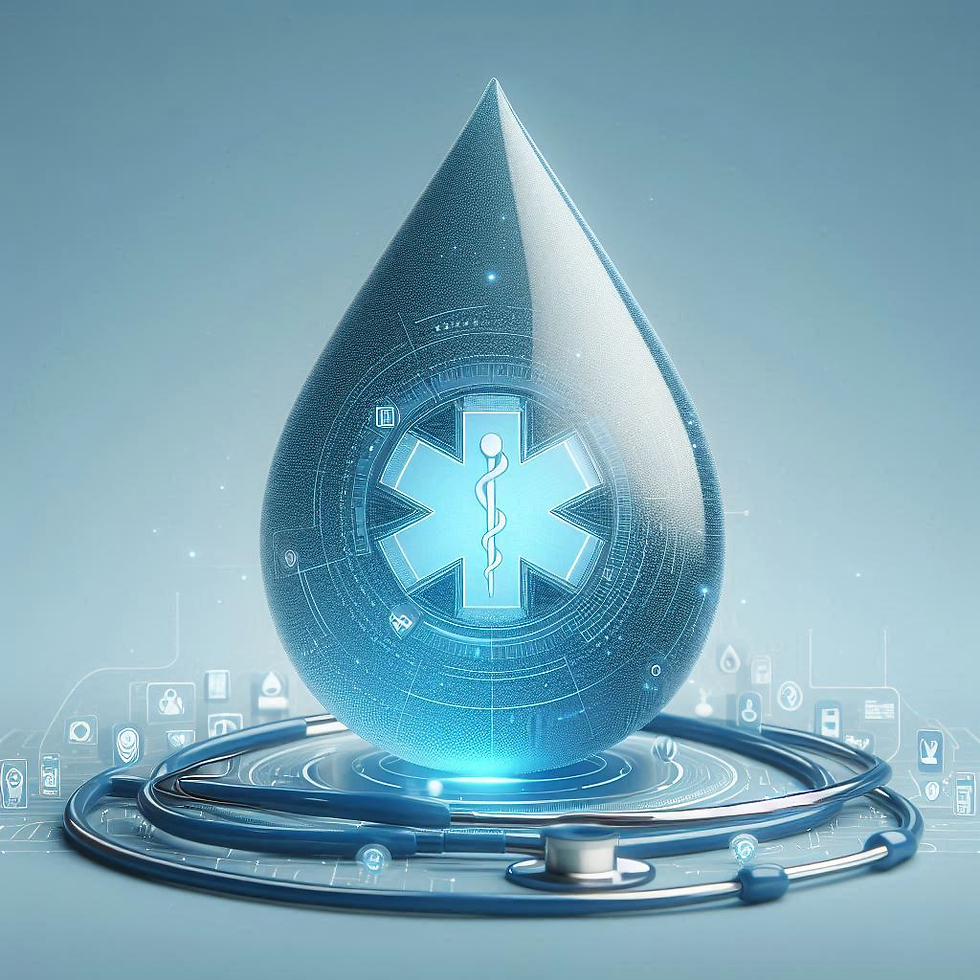How AI-Powered Medical Documentation Tools Are Revolutionizing Note-Taking and EHR Automation in Healthcare
- Matt Aebly
- Mar 19, 2025
- 4 min read
In today's busy healthcare environment, doctors spend enormous time on paperwork. This continuous administrative load contributes to physician burnout, a critical issue that affects not only healthcare professionals, but also the quality of patient care they provide. Recent surveys indicate that over 60% of physicians report feeling stressed due to excessive documentation.
Fortunately, advancements in technology are now making it easier for healthcare professionals to manage their documentation responsibilities. AI-powered medical documentation tools are transforming the landscape by offering significant time savings and improved accuracy in record-keeping.

The Problem: Time-Consuming Paperwork and Burnout
Many healthcare providers find themselves trapped in a cycle of administrative tasks, diverting their attention away from patient care. A study from the American Medical Association revealed that physicians spend nearly 50% of their workday on documentation, resulting in significant time lost.
The impact of this burnout can be severe. Not only does it cause decreased job satisfaction, but it also increases turnover rates. Alarmingly, burnout has been linked to a 30% decrease in patient satisfaction. Healthcare professionals often struggle to balance their documentation duties with the need to engage meaningfully with their patients.
To address these challenges, new solutions must be developed to reduce the burden of paperwork while ensuring patient records remain accurate and reliable.
Enter AI-Powered Medical Documentation Tools
AI-powered tools such as DeepScribe, Suki AI, and Nuance Dragon Medical One are designed to solve these documentation challenges by automating the note-taking process, including the creation of essential SOAP (Subjective, Objective, Assessment, Plan) notes.
DeepScribe
DeepScribe utilizes advanced natural language processing to autonomously generate clinical notes. As physicians converse with their patients, DeepScribe listens and transforms the dialogue into accurate and organized documentation. For instance, in studies, tools like DeepScribe have reduced note-taking time by over 60%, allowing doctors to focus more on patient engagement.
Suki AI
Suki AI is at the forefront of automating EHR documentation through understanding clinical speech. This tool allows doctors to dictate notes easily, and the AI skillfully interprets and converts this input into precise EHR entries. In one study, Suki significantly cut documentation time by up to 75%, enabling healthcare providers to dedicate more time to their patients rather than paperwork.

Nuance Dragon Medical One
Nuance Dragon Medical One enhances voice recognition, offering cloud-based speech capabilities tailored for healthcare professionals. Clinicians can easily dictate notes and orders directly into their EHR systems, achieving rapid and accurate documentation that meets regulatory standards. This tool has shown to boost documentation speed by approximately 50%.
AI-powered tools like these help to streamline the tedious task of documenting patient visits, enabling providers to concentrate on delivering high-quality care rather than getting bogged down by clerical tasks.
Challenges in Adopting AI Tools
Even with the promising capabilities of AI-powered documentation tools, many clinics face key challenges during adoption.
Choosing the Right Tool
The abundance of available AI solutions can overwhelm clinics. Factors like cost, functionality, user-friendliness, and integration with current EHR systems are crucial when making a decision. For example, a clinic with a limited budget may prioritize tools that offer the best return on investment from a time-saving perspective.
Integration with EHRs
Compatibility between AI tools and existing EHR systems is essential. Clinics may face difficulties that can disrupt workflows if the systems do not integrate smoothly. Research indicates that about 30% of healthcare practices encounter integration issues, which can exacerbate the frustrations associated with implementation.
Training Staff
Introducing Eau Claire AI: Your Partner in Adopting AI Solutions
To help healthcare practices overcome these hurdles, Eau Claire AI provides consulting services that assess, implement, and optimize AI documentation tools according to each clinic’s needs.
Eau Claire AI assists practices in evaluating various solutions, ensuring they fully grasp the features and benefits of each tool. Their team guides clinics during the integration process with existing EHR systems, minimizing confusion and disruption.
Moreover, Eau Claire AI offers training to ensure that all staff members are proficient in using the new technologies. By collaborating with Eau Claire AI, clinics can confidently adopt AI solutions, enhancing efficiencies and bolstering patient care.
The Transformation of Medical Documentation
The emergence of AI-powered medical documentation tools marks a notable transition in healthcare practices. These innovations not only streamline note-taking and EHR documentation but also alleviate the stress associated with tedious administrative tasks.
Healthcare providers that embrace these solutions can enjoy significant benefits. By saving time, reducing errors, and improving provider-patient interactions, these technologies represent a tangible advancement in the healthcare field.
If you are a clinic manager or physician striving to relieve your team from the burdens of paperwork and enhance patient care, consider investigating AI solutions for your practice.
Take Action Now
Don’t let documentation become a source of burnout for your clinic. Schedule a free consultation with Eau Claire AI today to discover how AI can transform your documentation processes. Together, you can unlock the potential of your medical practice and prioritize patient care over administrative tasks.
The future of healthcare documentation is bright—let’s embrace it together.







Comments